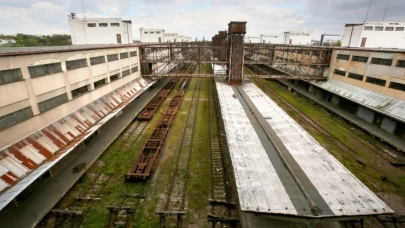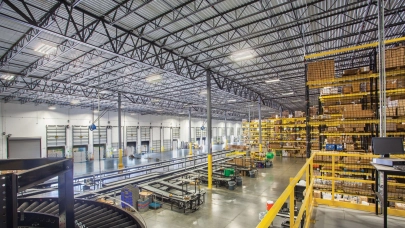
Serbia’s real estate market experienced record demand for office, logistics and residential space this year and this growth trend will continue in 2023. Banks will be somewhat stricter in terms of granting loans and financing conditions will tighten but the overall outlook is still positive, according to the speakers of the investment and financing panel of Balkans Property Forum 2022, organised last week in Belgrade.
In light of the uncertainty caused by the war and inflation, investors across Europe and the region are taking a more careful approach. “Inflation determines central bank policy and the cost of financing, which in turn influences investors’ activity. As long as interest rates remain where they are and we don’t know where they’re going, investors will remain cautious,” explained Krisztián Hornok MRICS, Transaction Director at Indotek Group. He also added, however, that Indotek Group understands risk and knows how to manage it. “We definitely want to diversify our portfolio and we have no set plans and preferences in terms of asset classes and countries. We are very opportunistic and ready to invest where and when we find product.”
Vasilije Jaukovic, Principal Banker at EBRD highlighted that the effects of inflation need to be looked at differently market by market and asset class by asset class. “We need to understand that inflation is becoming more of a symptom than a cause. We need to deal with the cause as we can’t cure the symptom”, he added.
New records on the residential market
As Hannes Wimmer, Executive Director, Loan Syndication at Erste Group Bank AG highlighted, people displaced by the Russian-Ukrainian war will create additional demand for real estate in several countries.
That’s also the case in Serbia, where the increased influx of foreigners (around 100,000 people) as a result of the war caused additional pressure on residential price growth, making this a record year in terms of the number of apartments sold and the amount of money spent on apartments. Residential rents also surged as Belgrade has historically had a low stock of apartments for rent.
“Looking ahead, taking into account increasing construction costs coupled with increased demand, there is no reason for apartment prices to go down. We should expect that banks will be somewhat stricter in terms of granting loans in 2023 but we do not expect that this will have a dramatic impact on demand as 70 percent of apartments are bought by equity in Belgrade", Srdjan Teofilović, Head of Capital Markets & Investor Services at CBS International pointed out, also highlighting that around 20,000 apartments are sold in Belgrade annually, which is for a city of almost two million inhabitants is a relatively small number.
Strong demand for logistics and office space
The logistics market is also crisis-resistant, proven by the fact that developer CTP Serbia plans to double its Serbian portfolio next year and build an additional 250,000 square meters. According to Petar Kolognat, Head of Business Development at CTP Serbia, the ongoing nearshoring trend – where companies are changing their strategies due to the collapse of supply chains, therefore relocating production facilities from the Far East to Western Europe – presents an opportunity for the region and Serbia. He believes that Serbia has a lack of Class A logistics space, which coupled with nearshoring trends and ongoing infrastructure projects that create new opportunities, makes a compelling case for investors and banks.
According to Srdjan Teofilović, demand for office space has doubled this year, so it’s no surprise that developers are currently building around 200,000 square meters of new office space in Belgrade. “20% of the entire office stock is being newly built or refurbished which presents a good opportunity for equity investors,” he added.
What do banks want to finance?
Milan Vićentić, Executive Board Member, Head of Corporate Banking Division at Eurobank Direktna, confirmed that logistics was one of the winners of the last few years. “Demand has been permanently increasing for the last 2.5 years. When the war started there was a brief slowdown but as soon as we were reassured that a nuclear war is not coming, companies continued investing,” he said.
Banks have no preferences, when it comes to asset classes, according to Hannes Wimmer. He shed light on some of the trends he’s been observing on the market during the last couple of months. “Demand for hotels is picking up thanks to recovering tourism, while demand for logistics remains strong. The residential market might be a bit stressed in certain markets, but overall banks are still open for business.”
Milan Vićentić highlighted that banks are naturally taking a more conservative approach than before. "The banking sector will continue to support the economy and the real estate sector, with constant monitoring of market changes and taking the necessary precautions in order to preserve the quality of existing loans in the real estate segment, as well as structuring new loans in a way that protects both clients and the bank," he explained.
Krisztián Hornok added that although every bank says that they’re open for business, in reality, it’s much more difficult and expensive to secure financing for a project than it would have been two years ago.



